Browse
Health And Nutrition
African Futures Cohort 5 Arrives at MSU
Alliance for African Partnership (AAP), a consortium of ten leading African universities, Michigan State University (MSU), and a network of African research institutes, is excited to welcome the fifth cohort of the African Futures Research Leadership Program to MSU for the in-person portion of the program. Each early career scholar is paired with a faculty mentor from MSU and their home institution for one year of virtual and in-person collaboration to strengthen research skills, innovations in teaching, writing of scholarly and/or policy publications, dissemination of research results and grant proposals.
A consortium-wide initiative, the African Futures program is designed to strengthen the capacity of a cadre of African researchers to return to their home institutions and become scientific leaders in their community, establish long-term partnerships with MSU faculty, co-create innovative solutions to Africa’s challenges, and in turn become trainers of the next generation of researchers.
African Futures Cohort 5: Alfdaniels Mabingo Performing Arts and Film Makerere University Home Mentor - Sylvia Antonia Nakimera Nannyonga-Tamusuza, Dept of Performing Arts and FilmMSU Mentor – Philip Effiong, Dept of English, Theater Studies & Humanities & Gianina Strother, Dept of African American and African Studies Gladys Gakenia Njoroge Pharmacy Practice and Public Health United States International University – Africa Home Mentor - Calvin A. Omolo, Dept of Pharmacy Practice and Public HealthMSU Mentor - Yuehua Cui, Dept of Statistics and Probability Seynabou Sene Plant Biology University Cheikh Anna Diop Home Mentor - Abdala Gamby Diedhiou, Dept of Plan BiologyMSU Mentor - Lisa Tiemann, Dept of Plant, Soil, and Microbial Sciences Portia T. Loeto Educational Foundations (Gender Studies Section) University of Botswana Home Mentor - Godi Mookode, Dept of SociologyMSU Mentor - Soma Chauduri, Dept of Sociology Betina Lukwambe Aquaculture Technology University of Dar es Salaam Home Mentor – Samwel Mchele Limbu, Dept of AquacultureMSU Mentor - Abigail Bennett, Dept of Fisheries and Wildlife & Maria Claudia Lopez, Dept of Community Sustainability Assilah Agigi Business Management University of PretoriaHome Mentor - Alex Antonites, Dept of Business Management MSU Mentor - Sriram Narayanan, Dept of Supply Chain Management Miriam Nthenya Kyule Agricultural Education and Extension Egerton University Home Mentor - Miriam Karwitha Charimbu, Dept of Crops, Horticulture and Soils MSU Mentor - Susan Wyche, Dept of Media and Information Studies Asha Nalunga Agribusiness and Natural Resource Economics Makerere University Home Mentor - Bernard Bashaasha, Dept of Agribusiness and Natural Resource Economics MSU Mentor - Saweda Liverpool-Tasie, Dept of Agricultural, Food, and Resource Economics
Ezinne Ezepue (participating virtually)Theatre & Film Studies University of Nigeria, Nsukka Home Mentor - Chinenye Amonyeze, Dept of Theatre & Film StudiesMSU Mentor - Jeff Wray, Dept of English
“We were extremely impressed with the quality and diversity of applications we received for this cohort of the African Futures program. We are excited to build on the successes of past cohorts and continue to evolve this program as we support the next generation of African research leaders,” said Jose Jackson-Malete, co-director of the Alliance for African Partnership.
Differing from previous cohorts, Cohort 5 is piloting a hybrid model of the African Futures program. The scholars began their work in February 2025 virtually, then will spend the fall semester at Michigan State University working closely with their MSU mentor. They will then complete the rest of their year back at their home institution, culminating in a research showcase in February 2026 to share the research they’ve done. Partnerships between mentors and mentees are expected to continue beyond the end of the program and lead to sustainable collaboration and future funding opportunities.
For more information, visit the Alliance for African Partnership website
By:
Justin Rabineau
Thursday, Sep 4, 2025
AGRI-FOOD SYSTEMS
+6
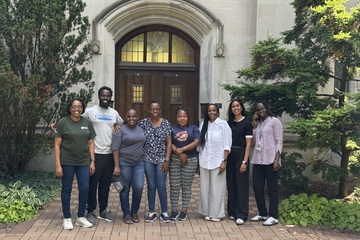
Leave a comment
Breaking Barriers: Sexual and Gender Minority-Led Advocacy to End AIDS in Africa and The Caribbean
Breaking Barriers provides readers a rare window into the realities of LGBT activism in Africa and the Caribbean. Close examinations of the ways in which LGBT-led activist organizations in Africa and the Caribbean contribute to progress in addressing the HIV epidemic in the face of immense and varied challenges are too rare. This book changes that dynamic by following these activists' journey to success under difficult circumstances. Readers will learn what it takes for local activists to eliminate obstacles to HIV prevention and care in their communities.
By:
Robin Lin Miller
Monday, Feb 17, 2025
HEALTH AND NUTRITION

Leave a comment
AAP announces 8 new PIRA partnership awards
Alliance for African Partnership (AAP), a consortium of ten leading African universities, Michigan State University (MSU), and a network of African research institutes, is excited to announce the recipients of the 2024 Partnerships for Innovative Research in Africa (PIRA) seed funding. Each team is composed of at least one lead from an AAP African member institution and one MSU lead. Some teams also include additional partners from NGOs and/or other universities from outside of AAP’s consortium. A consortium-wide initiative, PIRA grants are a tiered funding opportunity designed to cultivate and support multidirectional and transregional research partnerships at any stage of their development, whether it be initiatives to explore and create new relationships or scale existing ones. The total amount of PIRA grants awarded in 2024 is over $500,000.
Awarded projects cover diverse disciplinary perspectives and span AAP’s seven priority areas:
Agri-food systems
Water, Energy and Environment
Culture and Society
Youth Empowerment
Education
Health and Nutrition
Science, Technology and Innovation
All projects will integrate gender, equityand and inclusion issues in all stages of the project.
This year’s winning projects include:
Towards the Implementation of Smart Villages in the Rural Communities of Taraba State in Nigeria
Research leads: Shanelle N. Foster (MSU), Chidimma Frances Igboeli (University of Nigeria, Nsukka), Mbika Mutega (University of Johannesburg), Sari Stark (University of Lapland)
Institutional partners: Michigan State University (College of Engineering), University of Nigeria, Nsukka, University of Johannesburg and University of Lapland
Funding tier: Scaling grant (up to $100,000)
Green Technology Extraction and Characterization of Bioactive Components from Edible Fruits of Vitex donania and Uvaria chamae
Research leads: Leslie D. Bourquin (MSU), Insa Seck (UCAD)
Institutional partners: Michigan State University (College of Agriculture & Natural Resources), Universite Cheikh Anta Diop
Funding tier: Planning grant (up to $50,000)
Qi Hua Fan of MSU (left) and Tabitha Amollo of Egerton University (right) working in their solar cell lab.
Develop a Partnership for Renewable Energy Research and Education
Research leads: Qi Hua Fan (MSU), Tabitha Amollo (Egerton)
Institutional partners: Michigan State University (College of Engineering), Egerton University
Funding tier: Scaling grant (up to $100,000)
Bridging the Gap: Strengthening Research, Management and Community Alliances in South Africa’s Largest Coastal Marine Protected Area
Research leads: Amber K. Peters (MSU), Els Vermeulen (UP), Grant Smith (Sharklife)
Institutional partners: Michigan State University (College of Agriculture and Natural Resources), University of Pretoria, Sharklife Conservation Group
Funding tier: Planning grant (up to $50,000)
Changing Public Attitudes and Behaviors of Buying Counterfeits through Evidence-Based Education and Awareness-Raising Campaigns in Kenya
Research leads: Saleem Alhabash (MSU), Maureen Kangu (USIU), Robi Koki Ochieng (USIU), John Akoten (Anti-Counterfeit Authority)
Institutional partners: Michigan State University (College of Communication Arts & Sciences), United States International University-Africa, Anti-Counterfeit Authority
Funding tier: Planning grant (up to $50,000)
Leveraging Tourism and Hospitality Ecosystems to Expand Youth Entrepreneurship and Empowerment in Botswana
Research leads: Karthik Namasivayam (MSU), Mokgogi Lenao (UB)
Institutional partners: Michigan State University (Broad College of Business), University of Botswana
Funding tier: Planning grant (up to $50,000)
Children attending Pre-school in Tanzania benefit from the research project of Bethany Wilinski of MSU and Subilaga M Kejo of University of Dar es Salaam.
Tucheze Pamoja: Co-Creating Feasible and Sustainable Play-based Learning Approaches in Tanzania
Research leads: Bethany Wilinski (MSU), Subilaga M Kejo (UDSM)
Institutional partners: Michigan State University (College of Education), University of Dar es Salaam
Funding tier: Scaling grant (up to $100,000)
Promoting Science Communication and Engagement through Training and Digital Media Platforms
Research leads: Susan McFarlane-Alvarez (MSU), Dikabo Mogopodi (UB)
Institutional partners: Michigan State University (College of Communication Arts and Sciences), University of Botswana
Funding tier: Planning grant (up to $50,000)
“We were extremely impressed with the quality and diversity of proposals we received for this cycle of the PIRA program. The projects that were awarded all embody AAP’s commitment to innovation, equitable partnership, and our shared vision of transforming lives in Africa and beyond,” said Amy Jamison, co-director of the Alliance for African Partnership.
A unique aspect of PIRA grants is the expectation that institutions will establish and develop equitable partnerships from conception to close out of their respective projects. These equitable partnerships will be among the research team members themselves and include relevant local stakeholders. Teams will involve these local stakeholders as appropriate throughout the project, respecting their knowledge and expertise, and taking an adaptive approach that is responsive to the local context.
We invite you to join our virtual PIRA launch and showcase event at 8 a.m., Tuesday, Feb. 25 when all of our awardees will be discussing their projects. You can register for the event on Zoom.For more information, visit the Alliance for African Partnership website.
By:
Justin Rabineau
Monday, Jan 27, 2025
AGRI-FOOD SYSTEMS
+6
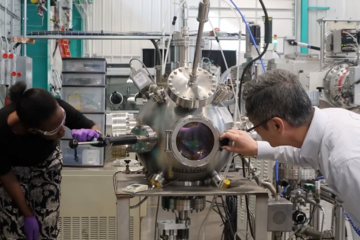
Leave a comment
Makerere University is determined to end Sickle Cell Disorder in Africa, in the lead of this mission
As you’re reading this sentence someone lost the opportunity of a lifetime simply because they are a woman. And as you’re reading this sentence, someone else was denied their dream for the exact same reason. Worldwide the proverbial glass ceiling has been cracked and battered over the past century. For most of us, we live in a world where women can vote, have aspirations, and are considered equal human beings instead of someone’s property. But damaged as the glass ceiling may be, it still hangs over the heads of many women. If you find this hard to believe, just ask any woman you know, and they will tell you how hard they had to fight for the same thing others take for granted. So, how can a woman become a leader in a world dominated by men?
The Alliance for African Partnership (AAP) recently launched a Centre of Excellence for Sickle Cell Anemia and Other Neglected Tropical Diseases during their annual consortium meeting at Makerere University (MAK). Nothing fell short of a tag “impressive”. Sarah Kiguli, a MAK scholar based in Uganda, has not only consistently been a leader amongst the academic and medical academic community, but she has been on the forefront of decisions affecting the country’s future. She sat on the council for Makerere University for eight years, she served as the president of the Association of Uganda Women Medical Doctors for four years and most recently, she has founded the Centre of Excellence for Sickle Cell Anemia and Other Neglected Tropical Diseases and spear heading this noble idea.
The center promises to be a turning point for Uganda, doing research on how to combat diseases which have been plaguing Uganda unabetted for years. Despite the center only existing for a month, it has already set up a system to register patients with sickle cell disease. By registering them, they and others will be aware of the risks of passing this disease down to the next generation and can take the necessary steps to prevent that.
Sarah’s resume of consistence excellence in leadership is a testament to her determination, but as with every woman before her she needed to scratch and claw at the glass ceiling to reach where she is today. Thanks to the leadership of Vice Chancellor, Prof Barnabas Nawangwe of recognizing these challenges, Sarah finds herself at the helm of this noble institution. When asked about the challenges she and other Ugandan woman have faced, she spoke about the difficulty of gaining the necessary skills to lead while raising a family. Worldwide, the common perception is that the women raise the family, and the men earn the money. Even if a woman is doing her best to earn, she is expected to shoulder the burden of cooking, cleaning, tending to the children. Can you imagine earning a bachelor’s degree, two master’s degrees and fellowship while having to juggle being a mother? Many people don’t need to imagine, and still, like Sarah, they manage to thrive. Even with less sleep, even with more stress, they succeed.
But despite her climb through the ceiling, Sarah is humble. Her story is not known because she does not go out of her way to share it. Partially due to introversion, Sarah does not make the obstacles she has broken through evident to those around her. Instead, she uses her passion to inspire. Using Vice Chancellor Nawangwe as an example, she explained that her passion for helping Ugandans suffering from diseases such as anemia is often enough to persuade him to trust in her ideas. This wouldn’t be the only time her passion for helping others aided her in her journey. She would note that she didn’t ascend the ladder to leadership alone. While her world is indeed dominated by men, many of them were swayed by her care for others and her willingness to do whatever is needed as she went through training in medical school as well as through her service in pediatrics. They mentored and supported her on her path to leadership, and she feels that without them she would not be where she is today.
She pays this forward to women that she works with. As she keeps an eye out for women to add to her team or to mentor into becoming leaders of their own. According to Sarah, she doesn’t just do this out of the kindness of her heart though, she knows and understands that women are necessary for science to continue to surge forward. When asked on the perspectives that women bring to science she used her experiences in Uganda as an example. In her culture, she noted that most women think broadly, beyond science, but the social and psychosocial effects of what they are studying and how to best mobilize communities to put solutions into effect. When looking at sickle cell research itself, she noted that the nurturing perspectives of older women allows for better research and mobilization teams to be built as well as patient care to be improved.
Finally, when Sarah Kiguli was asked to give advice to women who want to become leaders, or women who have been inspired by her story, she had the following to say: Think that woman should believe in herself. Believe in yourself, set your goals so that you can know where you want to go. Make targets, work with other people, work with people who support you. It is lonely, it is a lonely path moving up there, but also being up there is extremely lonely, especially if you are successful. It is lonely. So, surround yourself with people who support you. And we should always look out for each other as women. I know that there are groups holding researchers i know for doctors, we have groups holding doctors. But find, find, find a mentor if you don't have a mentor. mentorship is really important and find men and women who are willing to look out for you. So that they support you as you go through this journey. And it is actually possible. It is possible!
If you want to go there, identify what your niche is, what you want to do.
And then start the journey.
By:
Baboki Gaolaolwe-Major
Tuesday, Nov 12, 2024
HEALTH AND NUTRITION
+1
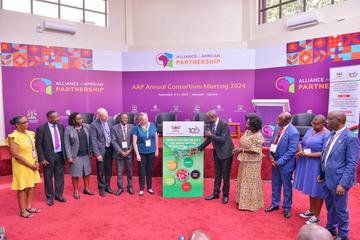
Leave a comment
The Role of Science, Institutions of Learning, and Training on Africa’s Fertilizer and Soil Health.
Summary: African soils are in danger, and this crisis threatens to disrupt food security and ecosystems, potentially leading to famine and nutritional challenges. Healthy soil is essential for human existence on earth. Healthy soils have biological, physical and chemical properties found in their top layer, or topsoil, that sustain plant and animal productivity, soil biodiversity and environmental quality.
Healthy topsoil is a key factor in bolstering agriculture productivity in Africa. Yet it is known that African soils are in a crisis. Addressing this urgent issue requires a collaborative effort involving policy and regulation, funding, private and community interventions, and, crucially, the leadership of African research and training institutions. These entities are pivotal in restoring Africa’s soil health and ensuring the appropriate use of fertilizers.
The Africa Fertilizer and Soil Health Summit (AFSHS), held in Nairobi, sought to address these pressing issues. The Summit’s primary goal was to establish an Africa Fertilizer and Soil Health Action Plan, a roadmap designed to tackle the challenges of declining soil health and low fertilizer efficacy across the continent. This plan, envisioned to guide efforts until 2030, aims to enhance agricultural productivity through sustainable practices and robust policy frameworks.
During the Summit, the Alliance for African Partnership (AAP), in collaboration with Michigan State University (MSU) and the Africa Network of Agricultural Policy Research Institutes (ANAPRI), organized a critical side event. This event underscored the indispensable role that African research and training institutions play in shaping and implementing policy reforms for fertilizer and soil health programs.
The Vital Role of African Research and Training Institutions
African research and training institutions are custodians of knowledge and expertise, uniquely positioned to drive sustainable agricultural practices and to address ongoing soil degradation. Their role in promoting sustainable practices and conducting extensive research is central to the success of the Africa Fertilizer and Soil Health Action Plan. These institutions, including universities, scientific crop and livestock institutes, and policy research think tanks, are essential in providing thought leadership, policy engagement, and the development of key solutions and implementation strategies.
Professor Thom S. Jayne of MSU highlighted this during his keynote presentation at the side event. He emphasized that effective implementation of soil health initiatives requires the involvement of trusted local institutions. “The message coming from established local actors will generate much greater trust and commitment than the same message from externally funded outside interests,” he noted. This sentiment reflects a broader recognition that African-led initiatives are crucial for achieving lasting impact and engagement with African governments.
Challenges and Collaborative Efforts
Implementing these initiatives is not without challenges. African food systems face pressures from climate change, population growth, conflict, and land degradation. Innovation is necessary to adapt to these conditions, and this innovation must be driven by robust agricultural research and extension systems. As Thomas Jayne stated, “Innovation is required for African founding populations to survive and remain competitive and productive in the face of all these changes.”
However, the adoption of innovative soil fertility practices among smallholder farmers remains low. Many farmers struggle to consistently implement practices like crop rotations, intercropping legumes, and recycling organic matter. To address this according to Thom Jayne, there must be strong bi-directional learning systems where farmers benefit from new technologies, and scientists understand and address the barriers to adoption.
Path Forward: Empowering Local Institutions
The need for empowering local African institutions will be key to responding to the call implementation of the actions plans. However the local institutions will need to take into account challenges such as; the need for building national coalitions of stakeholders and defining local level coordination mechanisms as well as resources including human and financial These institutions must be supported to fulfill their mandates, drive research and innovation, and implement policies that reflect the realities and needs of African agriculture on the ground. Professor Titus Awokuse from MSU underscored the importance of these partnerships. “Stakeholders must collaborate and contribute to the success of the action plans, from providing leadership and coordination to investing resources and actively participating in the implementation process,” he said. This collaborative approach ensures that the action plans are not just theoretical but are translated into tangible outcomes that benefit farmers and communities across Africa.
Conclusion
The Africa Fertilizer and Soil Health Summit and its associated events highlighted the critical need for a concerted effort to address soil health and fertilizer use in Africa. By leveraging the expertise and leadership of African research and training institutions, supported by a collaborative network of stakeholders, there is a real opportunity to create a more sustainable and productive agricultural future for the continent. The success of these initiatives will not only restore soil health but also enhance food security and resilience, ensuring a prosperous future for Africa and its people. Inherently, this is not a small feat, given the diverse multistakeholder partnerships, alongside the complex nature of various governments, it requires careful navigation. Titus Awokuse reminded everyone that “even though our conversations may take many forms and go in different directions, we need to always remember it's about the people. It's about families, children and individuals that don't have a voice, therefore in our conversations we need to think carefully on how to leverage our positions of privilege to make their voices heard”
By:
Baboki Gaolaolwe-Major
Wednesday, Jul 10, 2024
HEALTH AND NUTRITION
+2
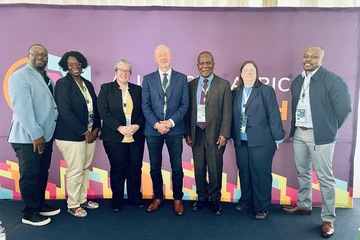
Leave a comment
USAID Administrator Samantha Power: A New Vision for Global Development
USAID Administrator Samantha Power delivers remarks outlining a bold vision for the future of the U.S. Agency for International Development (USAID) and inclusive development around the world. The speech takes place as USAID celebrates its 60th anniversary. Administrator Samantha Power's remarks will be followed by a conversation with 2020 USAID Payne Fellow Katryna Mahoney
By:
Derek Tobias
Thursday, Nov 4, 2021
AGRI-FOOD SYSTEMS
+5
Leave a comment
WHO greenlights the world's first malaria vaccine — but it's not a perfect shot
The world's arsenal against malaria just got a fancy new bazooka. But it's not the easiest weapon to deploy, it only hits its target 30 to 40% of the time, and it's not yet clear who's going to pay for it.
The weapon in question is the RTS,S vaccine from GlaxoSmithKline, which on Wednesday got the green light from the World Health Organization for widespread use.
This is not only the first authorized malaria vaccine, it's also the first vaccine ever approved for use against a parasitic disease in humans.
The recommendation comes after RTS,S showed positive results in a pilot program in Ghana, Kenya and Malawi. The vaccine cut malaria cases by 40% and reduced hospitalizations of the potentially deadly disease by nearly a third.
Continue reading on NPR website
By:
Derek Tobias
Wednesday, Oct 13, 2021
HEALTH AND NUTRITION

Leave a comment
UCLA African Studies Event: Africa's Readiness for Climate Change
Please find attached a special edition of our newsletter about the upcoming Africa’s Readiness for Climate Change (ARCC) virtual forum, organized by the UCLA African Studies Center and Earth Rights Institute.
The webinar event is scheduled for April 19-23 and registration to attend is free; register at: https://ucla.zoom.us/webinar/register/WN_b5cGk3_ASFO1WEkwK2NAtA. Exact times to be announced, but starting time will be 9 am for most days as three of the presenters will be Zooming from the continent.
Confirmed Speakers are Nnimmo Bassey, Director of the Health of Mother Earth Foundation; Ousmane Aly Pame, President Global Ecovillage Network Africa,
Founder/President REDES (Network for Ecovillage Emergence and Development in the Sahel); HE Ambassador Sidique Abou-Bakarr Wai, Sierra Leone Ambassador to the US; and Elizabeth Wathuti, Founder, Green Generation Initiative and Head of Campaigns at Wangari Maathai Foundation, Kenya.
Additionally, there will be panels on Public Health, Indigenous Knowledge, Policy, and more.
For information, please email africa@international.ucla.edu or visit the conference website at https://www.international.ucla.edu/asc/article/206676 or call 323.335.9965.
By:
Madeleine Futter
Monday, Aug 16, 2021
CULTURE AND SOCIETY
+2

Leave a comment
Virtual Dialogue "Vaccine Inequities in the Global South"
AAP is excited to announce its first Virtual Dialogue Event of 2021. For our inaugural dialogue, we will be highlighting conversations around COVID-19 Vaccine Inequities in the Global South.
We are delighted to partner with MSU African Studies Center, MSU Asian Studies Center, MSU Center for Latin American and Caribbean Studies and MSU Institute for Global Health as co-hosts on this event. We are also looking forward to opening remarks from President of @MSU President Samuel L. Stanley, an expert in epidemiology and public health.
Our speakers will include:
Tonya Villafana, Global Franchise Head, Infection, AstraZeneca, USA
Richard Mihigo, Coordinator for Immunization & Vaccine-Preventable Diseases Programme, World Health Organization, Regional Office for Africa, Republic of the Congo
Douglas Slater, Assistant Secretary General, Human and Social Development, Caribbean Community (CARICOM), Guyana
Ova Emilia, Dean, Faculty of Medicine, Public Health, and Nursing, Gadjah Mada University, Indonesia
Roberto Lopez, Executive Director, Acción Internacional para la Salud (AIS), Peru
Amit Kumar, Consul General of India, Chicago, USA
This international panel brings together diverse voices from the frontlines of addressing health disparities and inequities in vaccine access and distribution in a global context.
Register at the link below to attend
https://msu.zoom.us/webinar/register/5416152374824/WN_xAwE0u78TE6PuiBXe_ei-w
Learn more about the AAP Public Dialogue Series: https://aap.isp.msu.edu/engage/aap-public-dialogue-series/
By:
Madeleine Futter
Monday, Aug 16, 2021
HEALTH AND NUTRITION

Leave a comment
Epidemiological Change and Chronic Disease in Sub-Saharan Africa: Social and historical perspectives
UCL Press is pleased to announce a new open access book that is likely to be of interest to list subscribers: Epidemiological Change and Chronic Disease in Sub-Saharan Africa, edited by Megan Vaughan, Kafui Adjaye-Gbewonyo, and Marissa Mika.
Epidemiological Change and Chronic Disease in Sub-Saharan Africa offers new and critical perspectives on the causes and consequences of recent epidemiological changes in sub-Saharan Africa, particularly on the increasing incidence of so-called ‘non-communicable’ and chronic conditions. Historians, social anthropologists, public health experts and social epidemiologists present important insights from a number of African perspectives and locations to present an incisive critique of ‘epidemiological transition’ theory and suggest alternative understandings of the epidemiological change on the continent.
Arranged in three parts, ‘Temporalities: Beyond Transition’, ‘Numbers and Categories’ and ‘Local Biologies and Knowledge Systems’, the chapters cover a broad range of subjects and themes, including the trajectory of maternal mortality in East Africa, the African smoking epidemic, the history of sugar consumption in South Africa, causality between infectious and non-communicable diseases in Ghana and Belize, the complex relationships between adult hypertension and paediatric HIV in Botswana, and stories of cancer patients and their families as they pursue treatment and care in Kenya.
In all, the volume provides insights drawn from historical perspectives and from the African social and clinical experience to offer new perspectives on the changing epidemiology of sub-Saharan Africa that go beyond theories of ‘transition’. It will be of value to students and researchers in Global Health, Medical Anthropology and Public Health, and to readers with an interest in African Studies.
Download free: https://bit.ly/37ISfIy
**********************************
uclpress.co.uk | @uclpress
By:
Madeleine Futter
Monday, Aug 16, 2021
HEALTH AND NUTRITION
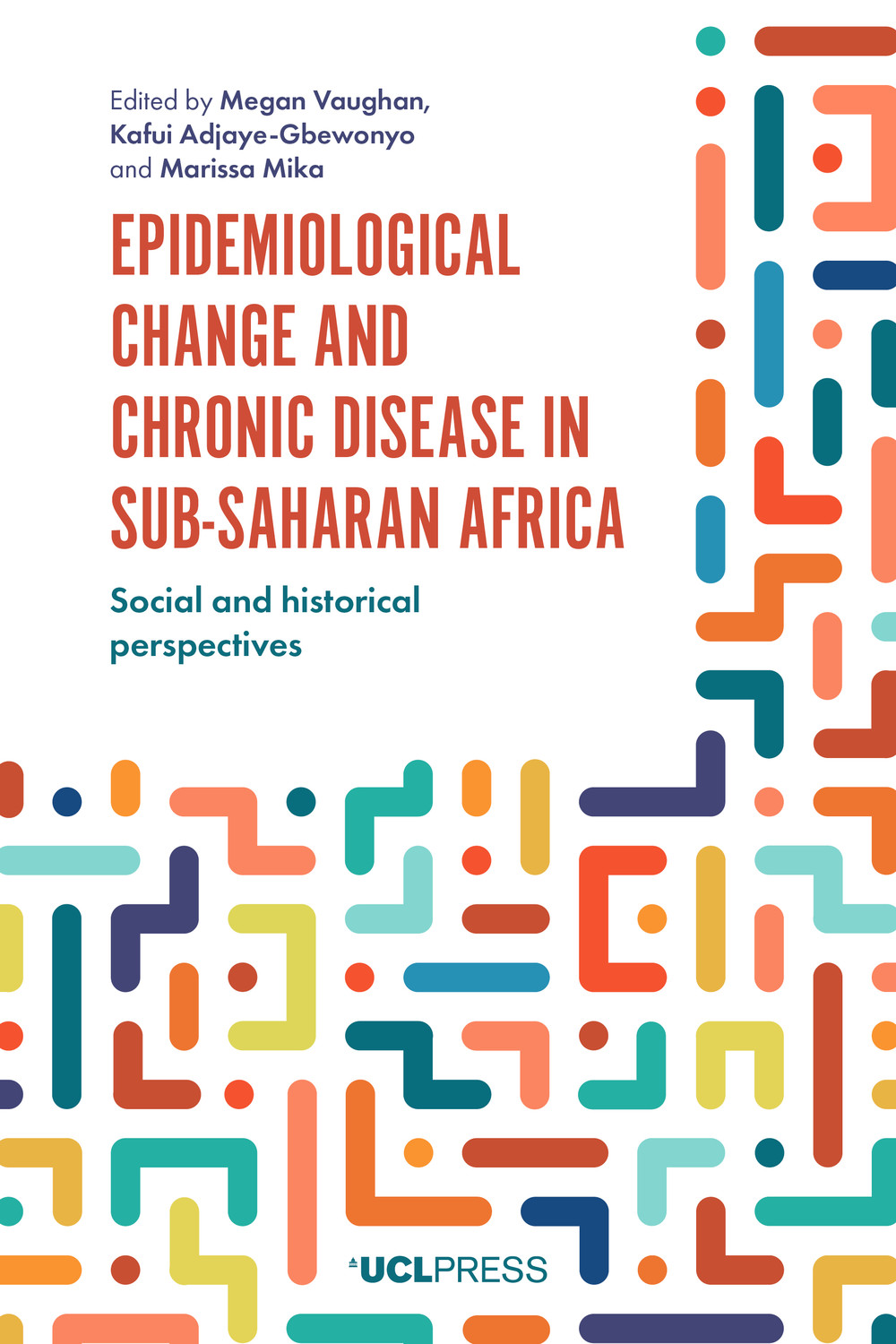
No Preview Available
Leave a comment
9 PhD Scholarships Available with Animal Health Innovation Lab
The Animal Health Innovation Lab in partnership with the University of Nairobi is offering 9 PhD scholarships. The fully funded positions, offered by USAID, will develop research and lab-based solutions to the East Coast Fever. In Kenya and East Africa, this tick-borne disease of cattle has created constraints to human nutrition and economic welfare. The multi-institutional and multi-disciplinary environment offers a unique opportunity for those seeking a PhD in a main research project at the Animal Health Innovation Lab.
The application deadline is Feb. 10, 2021 at 23:59pm. Review the link and photo to apply!
https://uonbi.ac.ke/news/feed-future-animal-health-innovation-lab-phd-scholarships
By:
Madeleine Futter
Monday, Aug 16, 2021
AGRI-FOOD SYSTEMS
+2

Leave a comment
The world needs the contribution of African scientists
Check out this University World News article on the need for more African scientists.
According to authors Marincola and Kariuki, "African science matters not only because African people matter but also because people everywhere in the world will thrive only if science is driven by the best possible talent and initiative of all the peoples of the world."
Click the link below to read more:
https://www.universityworldnews.com/post.php?story=20201015080006769&fbclid=IwAR3c8vP1yTAOTXW-bH2p_6ak4_mFqREKTBdN9iRlk5jEjz3C0v8a7_wtqtk
By:
Elaina Lawrence
Monday, Aug 16, 2021
HEALTH AND NUTRITION
+2
No Preview Available


Leave a comment